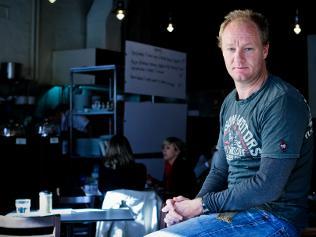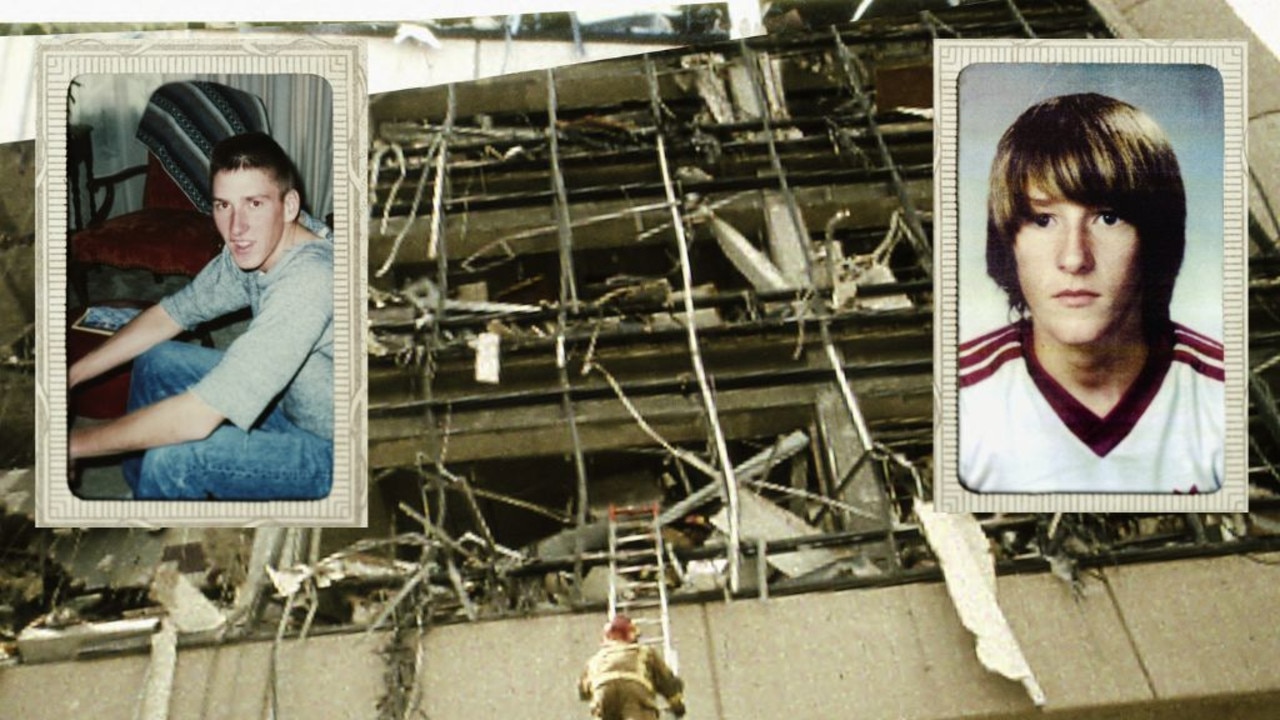The producers
If making hit shows were easy we'd all be doing it. Some leading creators explain what it take

If making hit shows were easy we'd all be doing it. Some leading creators explain what it take
EVER since I've been in this job at First Watch, after more than 40 years of appearing on television and directing dramas and commercials, I've been involuntarily involved in a disorienting game.
People send me ideas in the form of typed scripts, or more desperately, pieces of paper with odd paragraphs of dialogue typed on them and stylised drawings of scenes. Sometimes rather nicely directed short sequences on home-produced DVDs arrive. These people hope I can tell them how to sell these ideas to the TV networks. They want to be producers the way others want to be stars.
But when these unsolicited scripts arrive I'm always sadly reminded of the old TV industry joke: a producer is someone who wants to sell you something you don't want, that they haven't got yet.
"Pitching an original television concept can be something of a challenge when programmers tend to feel more comfortable dealing with established formats," says Working Dog's Tom Gleisner. The production company of which he is such an integral part, and which includes Rob Sitch, Jane Kennedy and Santo Cilauro, is responsible for some of the most original ideas in Australian TV. They include comedy series Frontline, The Hollowmen and the hit improvisational show Thank God You're Here.
"You can talk for hours about your innovative, ground-breaking idea and they'll be thinking whether to take a risk with you, or whether to buy a proven format from overseas," Gleisner continues. "We learned early on that there is little point solving a problem that the network doesn't have."
Kevin Brumpton, co-creator with Angus FitzSimons of the wickedly clever The Jesters, the pay-TV satire about local TV comedy, agrees. "Invariably the programming guys don't know what they are really after," he says. "When you talk to them you can see them kind of matching their market research against the ideas we bring to the table."
The great screenwriter William Goldman once coined the adage "nobody knows anything" about Hollywood and the screen trade. The comment refers to his strong belief that, before a movie's release, Hollywood has no real idea how well a film will do. These days the famous remark is used to convey a sense of general bewilderment when it comes to any kind of creative endeavour, including TV programming.
This isn't just among the network executives but the creators of shows themselves. "Right through this journey -- from the initial idea to the end of two complete seasons -- I believed I could make a show, but at no stage did I really know what show we were making," says Rob Carlton, producer and star of the clever, and now very successful, award-winning local comedy series Chandon Pictures. "Anyone who tells you they do is lying."
Carlton worked on his idea -- a series about a documentarian, deeply jealous of a movie maker, who can't understand why anyone won't take him seriously -- for more than 10 years before a scene was realised.
Ted Robinson, the veteran producer of Ten's Good News Week, which started on the ABC in 1996 before shifting networks, optioned a one-act play featuring comedians he saw at the Melbourne Comedy Festival six years ago. He's been tinkering with it since, he says, eventually turning it into a kind of sitcom that is now finally in production. "I've come to realise that if an idea actually gets up in TV, it's usually at the end of a long period of nibbling away; it's always a triumph of tenacity over talent more than anything else."
One thing Robinson says he's learned after reading countless submissions is that understanding ideas on the page takes time and work.
"To properly assess a script, to really determine its prospects, takes many, many readings; anything halfway good needs sustained thinking and concentration."
TV hits are notoriously difficult to predict. The surprises often defy logic or run contrary to prevailing tastes or are simply creative risks taken by clever producers and bold programmers. Desperate Housewives creator Marc Cherry, for example, was told his hit series was too dark, too weird and too morbid until someone took a punt.
Who imagined that corralling a bunch of exhibitionists in a house and pointing cameras at them would spawn a new genre of TV? Or that the show Ricky Gervais and Stephen Merchant found so difficult to sell anywhere in Britain, called so prosaically The Office, would change the nature of TV comedy? And go on to become a massive hit in the US?
"The biggest problem is that you can't see ideas on the page," Carlton says. "Because that's not where they live; they change and alter according to the way they are affected by everyone who works on them, adding their own contributions and changing them really into something else as you go."
According to Susan Bower, executive producer of the extraordinarily successful Neighbours, some ideas evolve even as they are being pitched; for the producer it's a matter of cutting the coat according to the cloth, adding different types of characters and eyeing alternative timeslots depending on which network is approached. "You would pitch Packed to the Rafters to Seven just the way it is; pitch it to Nine if one of the characters was a lesbian and another was a crim; and you take it to Ten with an emphasis on teenage kids, probably surfers."
Bower admits such flexibility compromises the essential integrity of ideas -- "there's a possibility that a lot of stuff can end up beige" -- but this is the working reality of the independent producer.
Before joining Neighbours Bower, a former emergency nurse, got her scriptwriting breakthrough on A Country Practice. She provided the medical information, wrote for, story-edited and produced many successful shows, including McLeod's Daughters. "You have a concept that you love, with a strong storyline that has legs, but as an independent producer you hawk your wares to all the networks, finding the right slant for each," she says. "But before you do you have to find out what they are looking for, without asking them. They get embarrassed about that."
Unusually, Robinson's company, GNWTV, is covering the costs of making a series of episodes of his new sitcom before even showing anything of the idea to networks. "We've taken the self-funding gamble because it's an idea that's not immediately discernable, so it's simply impossible for any network executive to assess it from a quick read of the page."
He is halfway through production, still unsure of what he is creating. "It might just be the biggest folly of my life," he says. To have a chance of having your idea accepted, Robinson says that obviously a producer needs to follow programming trends. Every network executive wants more of what's working. "Walk in and say you've got the new NCIS and you might just grab their attention."
Bower agrees: "The most basic thing to understand is to make your pitch short, sharp and catchy; to find out the point of familiarity and the point of difference and somehow mix those together in your spiel."
She says her worst pitch was to Seven's head of drama John Holmes and his team. She presented an idea about a sexy lead quadriplegic character confined to a wheelchair but generating a great deal of what producers call "urst" or "unresolved sexual tension". As she compared the character to the famous Ironside series with Raymond Burr and the novels of Jeffery Deaver featuring the quadriplegic criminalist Lincoln Rhyme, she saw their faces fall. "Instantly I knew I was making a mistake; this was Channel Seven," she says.
She still remembers Holmes saying quietly to the other executives in the room: "Get up and back slowly towards the door, do not make a loud noise; we might be safe if we leave her here."
She also still recalls the original pitch for McLeod's Daughters with the creator Posie Graeme-Evans. "As soon as Posie mentioned sexy girls on horseback, she sealed the deal," Bower says. Graeme-Evans is also supposed to have pitched Hi-5, the Nine kid's show now shown in 83 countries, as "Sesame Street on speed".
Programmers, I'm told, love these one-liners that instantly explain what a show is, especially if a producer links the idea to one that has already worked. After all, ideas can be defined as a synthesis of old elements: the Greek word eidos originally meant "form, shape", and that is what a real idea possesses.
Carlton, though, worries less about these subtleties than being assertive, almost aggressive, in his approach. "My feeling on pitching your idea is simple: you have to let them know this thing is going to happen with or without them," he says. "Are they going to be smart enough to buy a ticket or just miss out on the ride altogether?"
He believes that because TV is big business, anyone who wants to be part of it must recognise the simple economic context and leave all the talk of art and process in the carpark outside. "You're in the big marketplace and you have to treat it as that. You're not trying to inspire a network to lose a million bucks so that we can all have a better life and feel good about ourselves."
His working principle is simple: "You're trying to persuade a businessman to give you a lot of money so he can get a lot more back from what you produce for him."
Carlton, having worked so hard for so many years to sell his notion of Chandon Pictures, is still amused by the whole, labyrinthine process of flogging ideas. "It's funny isn't it? Everyone looks at TV and believes they have a better idea for a show than the one they are looking at. They think if they tell someone about this great idea they can become an executive producer."
But as Carlton says, when he looks at a hole in the ground he never thinks he has an idea for a building and is really an architect and engineer rolled into one person. "Yet so many people you meet think they can have one idea that will let them turn up on a film set and call themselves the boss."
If only it were that easy, folks.


